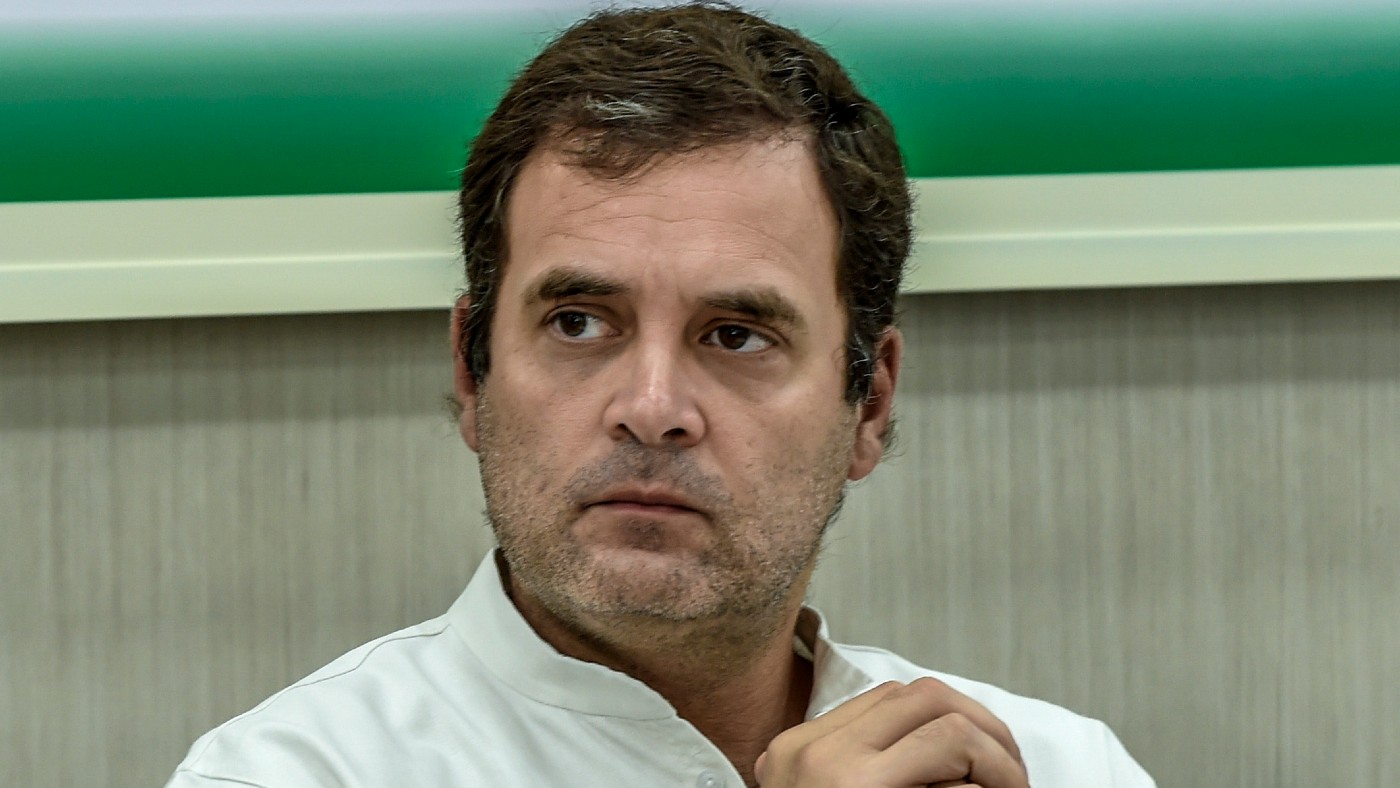Rahul Gandhi: defamation conviction causes uproar in India
Critics decry disqualification of Indian opposition politician as ‘murder of democracy’

A free daily email with the biggest news stories of the day – and the best features from TheWeek.com
You are now subscribed
Your newsletter sign-up was successful
“Why do all thieves have Modi as their surname?”
So asked opposition politician Rahul Gandhi at a 2019 rally shortly before India’s last general election. To support his point, Gandhi named banned Indian Premier League commissioner Lalit Modi, fugitive diamond merchant Nirav Modi – and the country’s prime minister, Narendra Modi.
The comments did not go unnoticed. Last week, Gandhi – the former president of his Congress party, and the great-grandson of India’s first PM, Jawaharlal Nehru – was found guilty of defamation and handed a two-year jail sentence.
The Week
Escape your echo chamber. Get the facts behind the news, plus analysis from multiple perspectives.

Sign up for The Week's Free Newsletters
From our morning news briefing to a weekly Good News Newsletter, get the best of The Week delivered directly to your inbox.
From our morning news briefing to a weekly Good News Newsletter, get the best of The Week delivered directly to your inbox.
The case against him was brought by Purnesh Modi, a member of the ruling Bharatiya Janata Party (BJP) in the western state of Gujarat. The lawmaker complained that Gandhi’s comments had “defamed the entire Modi community”.
Gandhi, who is appealing against the Gujarat’s court verdict, has countered that he made the statement to highlight corruption generally rather than to defame any specific community.
Some of Gandhi’s allies have gone further and “described the court order as politically motivated”, said Al Jazeera. Pradip Bhattacharya, a Congress legislator from West Bengal state, claimed the defamation case had been brought because the BJP was “fearful about the rise” of Gandhi and the “direct threat” that he poses to the Modi government.
India’s parliament disqualified Gandhi as a lawmaker with immediate effect following his conviction, and he will be “unable to contest future elections unless his sentence is either stayed or he is acquitted”, said CNN. With voters due to head to the polls next year, the verdict threatens to “neuter one of the few figures that has the kind of star power and name recognition” to challenge Prime Minister Modi, the broadcaster added.
A free daily email with the biggest news stories of the day – and the best features from TheWeek.com
Over the weekend, Gandhi’s supporters staged nationwide sit-ins inspired by his namesake Mahatma Gandhi. Critics are decrying his disqualification as a “murder of democracy”, while a Congress party spokesperson said the court’s conclusions were “legally unsustainable”.
Another senior Congress politician, Jairam Ramesh, tweeted that the party would “fight this battle both legally and politically”, adding: “We will not be intimidated or silenced.”
Many Indians will be “bewildered” by Gandhi’s disqualification, said The Guardian, “given that 233 of the 539 MPs elected in the 2019 general election have criminal charges against them – many of them more serious than defamation”.
In the immediate term, Gandhi’s disqualification will trigger a by-election in his constituency of Wayanad in Kerala, in south India. As he gears up for an appeal process that is likely to end in the supreme court, fellow opposition politician Derek O’Brien, of the Trinamool Congress party, said the whole saga showed that the BJP was “desperate to silence the voice of the opposition”.
“This is the lowest of the low in the history of parliamentary democracy,” O’Brien added. “Shame on them.”
Arion McNicoll is a freelance writer at The Week Digital and was previously the UK website’s editor. He has also held senior editorial roles at CNN, The Times and The Sunday Times. Along with his writing work, he co-hosts “Today in History with The Retrospectors”, Rethink Audio’s flagship daily podcast, and is a regular panellist (and occasional stand-in host) on “The Week Unwrapped”. He is also a judge for The Publisher Podcast Awards.